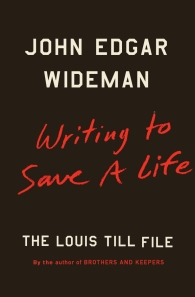
Writing to Save a Life: THE LOUIS TILL FILE, by John Edgar Wideman (Scribner, an Imprint of Simon & Schuster, Inc, New York, NY, 2016, 193 pages).
Book Review by Dennis Moore
“Unclassifiable and harrowing. The path through the very specific ‘American darkness that disconnects colored fathers from sons’ is found and lost and found again through prose that jumps and shimmers, punches and croons. This is one of those books virtually impossible to write…yet it has been written. And by a great American writer.”
- JOY WILLIAMS, author of Ninety-Nine Stories of God and The Visiting Privilege
May 3, 2017 (San Diego) - John Edgar Wideman, has written an insightful and provocative book that is full of ironies; Writing to Save a Life: THE LOUIS TILL FILE. It is the story of Louis Till, the father of Emmett Till, the young boy from Chicago who was lynched in Mississippi allegedly for whistling at a white woman. Wideman’s book is the untold story of Louis Till, a man of color who suffered a miscarriage of racial justice a full decade before the infamous lynching of his son, Emmett. This really is about a cruel twist of fate and circumstance that is painful to envision.
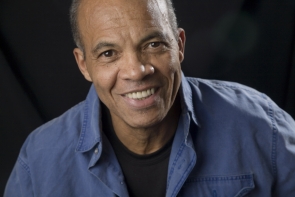 Wideman, is the author of Philadelphia Fire, Brothers and Keepers, Fatheralong, Hoop Roots, and Sent for You Yesterday, among others. He is a MacArthur Fellow and a member of the American Academy of Arts and Letters, and he has won the PEN/Faulkner Award twice and has been a finalist for the National Book Critics Circle Award and the National Book Award, as he divides his time between New York and France.
Wideman, is the author of Philadelphia Fire, Brothers and Keepers, Fatheralong, Hoop Roots, and Sent for You Yesterday, among others. He is a MacArthur Fellow and a member of the American Academy of Arts and Letters, and he has won the PEN/Faulkner Award twice and has been a finalist for the National Book Critics Circle Award and the National Book Award, as he divides his time between New York and France.
The author has put his heart and soul in Writing to Save a Life, which becomes painfully obvious as one reads this well researched and documented account of the tragedy in life and between the father and son of Louis and Emmett Till.
At times reading like investigative reporting by a major news source or magazine, Writing to Save a Life will keep and capture your attention throughout the book, and definitely remind the reader of man’s inhumanity to man. This is a brutal story.
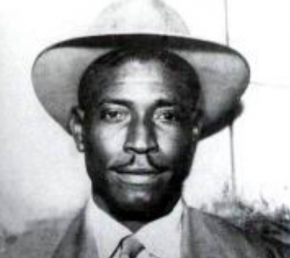 There are so many intriguing and historic layers to this well researched book by Wideman, such as the early relationships that he had with his mother and father, which he parallels with that of the Till family. It seems at time and throughout this deep and at times disturbing portrait of an American nightmare, that the author is living vicariously through that of Louis Till. An example of this is in the chapter on (“Graves”), in which Wideman states: “My fear of violent death. I’m afraid Louis Till might be inside me. Afraid that someone looking for Louis Till is coming to pry me apart.”
There are so many intriguing and historic layers to this well researched book by Wideman, such as the early relationships that he had with his mother and father, which he parallels with that of the Till family. It seems at time and throughout this deep and at times disturbing portrait of an American nightmare, that the author is living vicariously through that of Louis Till. An example of this is in the chapter on (“Graves”), in which Wideman states: “My fear of violent death. I’m afraid Louis Till might be inside me. Afraid that someone looking for Louis Till is coming to pry me apart.”
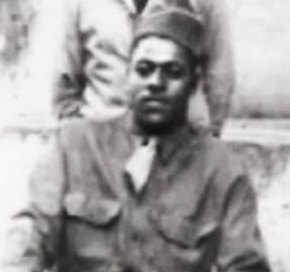 In further regard to Wideman’s chapter on (“Graves”) in which he explores his own relationship with his mother and father – juxtaposed against that of Emmett Till and his mother Mamie Bradley and that of Emmett’s father Louis, he states: “Selfish. Just like him. Just like your father. Mean and selfish like him and not a soul in the world you care about besides yourself, my mother shouted, her face close enough to mine to touch.”
In further regard to Wideman’s chapter on (“Graves”) in which he explores his own relationship with his mother and father – juxtaposed against that of Emmett Till and his mother Mamie Bradley and that of Emmett’s father Louis, he states: “Selfish. Just like him. Just like your father. Mean and selfish like him and not a soul in the world you care about besides yourself, my mother shouted, her face close enough to mine to touch.”
 It was just this such type of characterization of Louis Till that would lead to his undoing, at the end of a hangman’s rope, after a judge had given Louis Till the option of joining the army or go to jail, after Till had been accused of beating and abuse of his wife Mamie Bradley Till. If not for that, perhaps Louis Till would have been around for his son Emmett and Emmett could have also escaped his brutal fate.
It was just this such type of characterization of Louis Till that would lead to his undoing, at the end of a hangman’s rope, after a judge had given Louis Till the option of joining the army or go to jail, after Till had been accused of beating and abuse of his wife Mamie Bradley Till. If not for that, perhaps Louis Till would have been around for his son Emmett and Emmett could have also escaped his brutal fate.
An evocative and personal exploration of individual and collective memory by one of the most formidable intellectuals of our time, Writing to Save a Life traces two generations of one family – civil rights martyr Emmett Till and his father, Louis – and the uniquely American brand of brutality that cut short both of their lives.
In an earlier article in Esquire Magazine, titled A Black and White Case, Wideman makes a statement that encapsulates the essence and story of this book – which resonates with me: “If Louis Till had been around to school his son about the South, about black boys and white men up north and down south, would Emmett have returned safely from his trip to Money, Mississippi, started up public high in Chicago, earned good grades like I did, eluded the fate of his father, maybe even become president of the United States. But the flame of his father’s fate draws Emmett like a moth. Son flies backward and forward simultaneously like the sankofa bird because part of the father’s fate is never to be around to protect, advise, and supervise his son, the father and son to orphan each other always. Sons and fathers. An eternal cycle of missing and absence. Bright wings flutter like a dark room lit suddenly by a match.”
Who knows, without the absence of Louis Till the young Emmett Till could have been the first black president, instead of Barack Obama – all from our hometown of Chicago. That irony resonates with me, as does so many others in Writing to Save a Life. Listen to and view former President Barack Obama's speech on a Father's Responsibility to their Children at the Apostolic Church of God in Chicago here.
Emmett Till took a train from his home in Chicago to visit family in Money, Mississippi; a few weeks later he returned home dead. Murdered because he was a colored boy and had, allegedly, whistled at a white woman. His mother, Mamie Till, chose to display her son’s brutalized body in a glass-topped casket so the world could see “what they did to my baby.” Read transcript of Mamie Bradley Till's courtroom testimony here.
Emmett Till’s murder in Mississippi and his mother’s refusal to allow his story to be forgotten have become American legends. But one darkly significant twist in the Till legend is rarely mentioned; Louis Till, Emmett Till’s father, Mamie’s husband, a soldier in World War II, was executed in Italy for committing rape and murder.
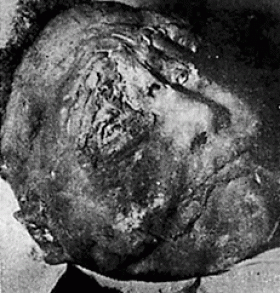 Wideman’s personal engagement with the Tills began in 1955, when both he and Emmett were only fourteen years old and Wideman saw a horrific photo of dead Emmett’s battered face. Decades later, upon discovering that Louis Till had been court-martialed and hanged, Wideman felt compelled to investigate the tragically intertwined fates of father and son.
Wideman’s personal engagement with the Tills began in 1955, when both he and Emmett were only fourteen years old and Wideman saw a horrific photo of dead Emmett’s battered face. Decades later, upon discovering that Louis Till had been court-martialed and hanged, Wideman felt compelled to investigate the tragically intertwined fates of father and son.
Perhaps the biggest irony in this story, is the fact that the execution of Louis Till would lead to no charges being filed against the men that admittedly killed his son; Roy Bryant and J.W. Milam. After Bryant and Milam had been exonerated by an all-white male jury, the State of Mississippi considered charges of kidnapping against them in the face of overwhelming evidence, but the confidential army service trial of Louis Till, including his hanging for murder and rape, was leaked to the press. The powers that be then had less of an appetite of indicting Bryant and Milam for the kidnapping of Emmett Till, despite the abundant and sworn testimony recorded in the Sumner, Mississippi trial of Bryant and Milam that they had forcibly abducted Emmett Till.
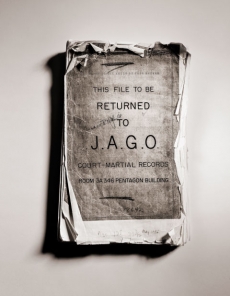 In this well researched and documented book by Wideman, and in my telephone interview with him, he alludes to the theory that certain Mississippi Senators used their political clout to obtain the confidential military file of Louis Till, and share the mean and nasty contents of it about Till’s hanging, which would make it less inclined for the State of Mississippi to indict Bryant and Milam for anything.
In this well researched and documented book by Wideman, and in my telephone interview with him, he alludes to the theory that certain Mississippi Senators used their political clout to obtain the confidential military file of Louis Till, and share the mean and nasty contents of it about Till’s hanging, which would make it less inclined for the State of Mississippi to indict Bryant and Milam for anything.
In a subsequent phone conversation with Mr. Wideman, I questioned him about a particular statement and passage in his book; “If I return to Louis Till’s grave, I will confess to him that the Louis Till project is about saving a son and brother, about saving myself.” The author indicated to me that this was intimate and personal to him, as his wife had earlier asked him, particular in regard to his seemingly obsession with Louis Till; “Why not work for live prisoners – millions of people are locked up this very minute?” The author responded to his wife by stating: “I do. I am. I want to say – want to explain to her, to myself – I work for an incarcerated son and brother. They are locked inside me. I am imprisoned with them during every moment that I struggle with the Till file.”
 The author concluded our phone conversation by indicating to me that there is a movement afoot to investigate the many graves of black soldiers that have been executed and buried in the Oise-Aisne American Cemetery and Memorial, as was Louis Till, buried in Plot E 120 kilometers east of Paris. He further indicated that it was a Mississippi Senator by the name of James O. Eastland, that circumvented the further indictment of Roy Bryant and J.W. Bryant in the subsequent kidnapping and murder of Louis Till’s son, by obtaining and sharing confidential military records of Louis Till.
The author concluded our phone conversation by indicating to me that there is a movement afoot to investigate the many graves of black soldiers that have been executed and buried in the Oise-Aisne American Cemetery and Memorial, as was Louis Till, buried in Plot E 120 kilometers east of Paris. He further indicated that it was a Mississippi Senator by the name of James O. Eastland, that circumvented the further indictment of Roy Bryant and J.W. Bryant in the subsequent kidnapping and murder of Louis Till’s son, by obtaining and sharing confidential military records of Louis Till.
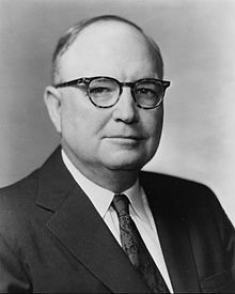 It is not unreasonable to believe or conclude that Senator Eastland would use his considerable clout to obtain the confidential military file of Louis Till, and then share it with the Mississippi press, in order to help the admitted killers of Till’s son Emmett. After all, Senator Eastland served as the chairman of the U.S. Judiciary Committee for 22 years, and he often spoke of blacks as “an inferior race.” Senator Eastland was also known to frequently rise to the Senate floor, and complain about the possible “mongrelization” of the races.
It is not unreasonable to believe or conclude that Senator Eastland would use his considerable clout to obtain the confidential military file of Louis Till, and then share it with the Mississippi press, in order to help the admitted killers of Till’s son Emmett. After all, Senator Eastland served as the chairman of the U.S. Judiciary Committee for 22 years, and he often spoke of blacks as “an inferior race.” Senator Eastland was also known to frequently rise to the Senate floor, and complain about the possible “mongrelization” of the races.
This book is intriguing and the height of investigative reporting, which I encourage all to read, especially those interested in finding and preserving the truth about history. Also at times reading like a Shakespearean play or tragicomedy, this riveting book by Wideman is spellbinding in its message on history and race relations, as well as man’s inhumanity to man.
 Dennis Moore has been the Associate Editor of the East County Magazine in San Diego and he is the book review editor for SDWriteway, an online newsletter for writers in San Diego that has partnered with the East County Magazine, as well as a freelance contributor to EURweb based out of Los Angeles. He is also the author of a book about Chicago politics; “The City That Works: Power, Politics and Corruption in Chicago.” Mr. Moore can be contacted at contractsagency@gmail.com or you can follow him on Twitter at: @DennisMoore8.
Dennis Moore has been the Associate Editor of the East County Magazine in San Diego and he is the book review editor for SDWriteway, an online newsletter for writers in San Diego that has partnered with the East County Magazine, as well as a freelance contributor to EURweb based out of Los Angeles. He is also the author of a book about Chicago politics; “The City That Works: Power, Politics and Corruption in Chicago.” Mr. Moore can be contacted at contractsagency@gmail.com or you can follow him on Twitter at: @DennisMoore8.







Comments
Writing to Save a Life Re: Wideman's book and Dennis Moore Revie
"Till" The Movie
It seems like it was only a matter of time before the tragedy of the death of Emmett Till would be made into a movie.
Good review
The life and legacy of Emmett Till honored by President Biden.
In a ceremony today at the White House President Joe Biden honored the young black teenager Emmett Till who was brutally murdered in Mississippi by establishing a national monument for him to be established in Mississippi and in my hometown of Chicago. The honor was also bestowed on his mother Mamie.
Bringing the Darkness to Light
Writing to Save a Life: THE LOUIS TILL FILE.
Most of us have readily studied the accounts of Emmet Till; however, most have never taken into account the parallelism that occurs in the life of Emmet's father. The commentary, and expertise, in which Dennis' executes his review has escalated my desire to seek out a copy of this manuscript. Stories that bring darkness to light are pertinent for the elevation of mankind. We cannot keep secrets hidden in the dark and expect the world to change. Like the author of this compelling story, I too have penned a manuscript that awakens awareness to social issues that still plague society - physical, psychological, and spiritual abuse of women in the USA. This work, a must-read, is entitled,Between the Pages: Where trials become TRIUMPH!
and can be ordered on Amazon at https://goo.gl/NSQAsdThe President of the United States signs the Emmett Till Act
President Joe Biden has kept his campaign promise by bringing justice to all Americans, particular the ancestors of Emmett Till, by recently signing the Emmett Till Anti-Lynching Act. Read here/
"Between the Pages" upcoming book review
Thank you for your comment on my review of this book about the father of Emmett Till, Louis Till. I look forward to writing a review of your book "Between the Pages" in our East County Magazine, as from what I have already read about it I expect it to be just as profound as "Writing to Save a Life" by John Edgar Wideman.